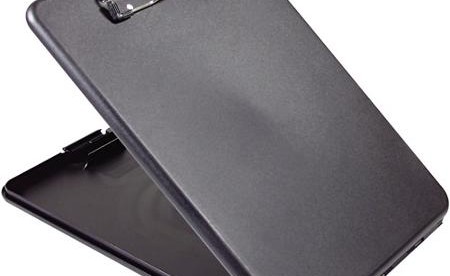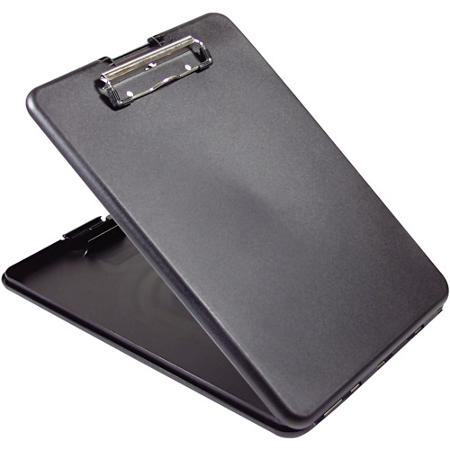A Weighty Issue

Imagine you have in front of you an important document — something that you need someone to not only read, but also fully understand and appreciate the implications of. You’ll probably label it in a way as to draw extra attention to it — “urgent” or “time sensitive” in bold or red may work. And if you want make sure it gets there, you can hand it to them in person, and use that encounter to reiterate, audibly, that the document needs the reader to give it extra time and attention.
Oh, and you should probably use one of these:

But, it turns out, it probably isn’t.
In 2010, a group of researchers led by the University of Amsterdam’s Nils B. Jostmann wanted to see if a “heavier” idea — one that somehow physically weighs more — would be treated as more important than a lighter one. Enter the clipboards. The researchers handed out two sets of the clipboards; half had some weights added into the compartment while others were left empty. Then, the participants were given one of three sets of documents, and asked to evaluate what those documents said. The New York Times explains:
Participants stood with either a light or heavy clipboard cradled in their arm, filling out surveys. In one, they were asked to estimate the value of six unfamiliar foreign currencies. In another, students indicated how important they thought it was that a university committee take their opinions into account when deciding on the size of foreign study grants. For a third experiment, participants were asked how satisfied they were with (a) the city of Amsterdam and (b) the mayor of Amsterdam.
In all three situations, the group with the heavier clipboards gave answers which clearly differed from those with the lighter ones. The currencies were deemed to be worth more and the students believed that the university committee should consider the opinions of students more, for the first two experiments. As for the third experiment, the abstract to the paper states that the heavier experience “caused more elaborate thinking, as indicated by higher consistency between related judgments” — that is, answers regarding the role of Amsterdam’s leaders were more in depth.
Per the Washington Post, Jostmann believes that this “association of weight with importance stems from childhood experiences in which we learn that dealing with something heavy often requires more care.” It’s no coincidence, Jostmann continued, that the term “weighty” is a metaphor “very important and serious” in many different languages.
If that line of reasoning seems a bit weak, don’t worry — there’s another study which suggests that there’s something to this. Later in 2010, a team of psychologists from Harvard, Yale, and MIT also ran a study involving clipboards of various weights, hoping to see what effect, if any, the weight had on the information presented on the documents. In this case, per the Harvard Gazette, the documents were resumes. Those with the heavier clipboards “judged candidates whose resumes were seen on a heavy clipboard as better qualified and more serious about the position, and rated their own accuracy at the task as more important.”
Take the Quiz: How well do you know Mickey Mouse’s resumé?
Related: A book on the 100 most important ideas in science. To really give it proper attention, you should buy the hardcover version — it weighs more.
